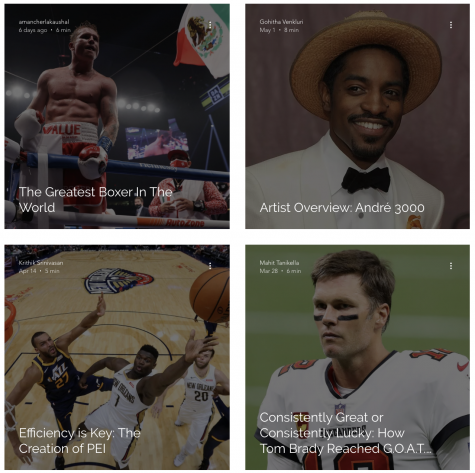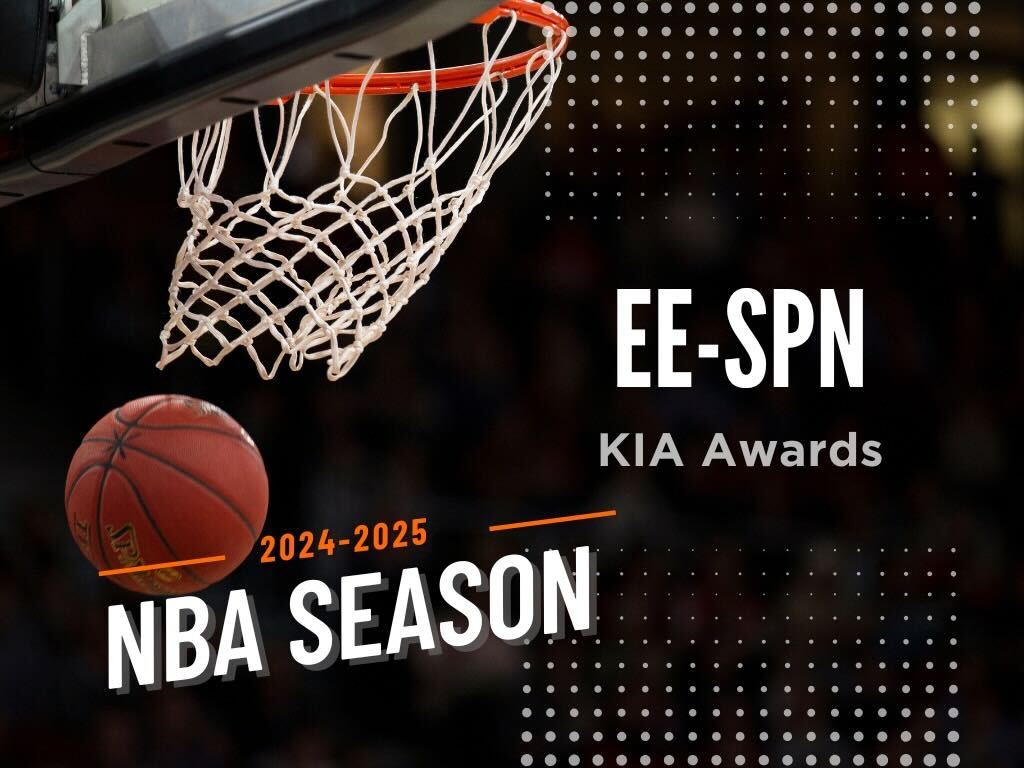Sports analytics
New student-run website BetaHoops aims to popularize sports analytics at MVHS
May 18, 2021
“[Sports analytics], seeing it play out, was very fascinating and eye-opening for me, and it changed the way not only I, but every other basketball fan, sees the game … When we grew up watching these players, we saw them taking different kinds of shots. There was a completely different mentality about the game. Now it’s all about optimizing — kind of ruthlessly, almost, optimizing your chances of winning the game. It’s a mixed-emotion type of thing for the fan, but it’s really fascinating to see, at the same time, how they use these mathematical methods to determine how to play the game.”
The phrase sports analytics is a recent addition to popular sports vernacular. A blanket term describing the application of data analysis to sports, sports analytics first appeared in the early 2000s following the Oakland As’ Moneyball phenomenon, in which the underfunded team shocked fans with a slew of successes by choosing undervalued players using statistical metrics contradictory to then-conventional baseball wisdom. Junior Krithik Srinivasan encountered sports analytics at a young age through watching various YouTube channels, but it wasn’t until his sophomore year when he self-studied AP Statistics that he began applying these quantitative techniques to his own analysis of sports.
“When I used to be unfamiliar with sports analytics, when I was younger, and even up to a couple years ago, I would really enjoy watching basketball or football and trying to make predictions on my own, but it was always hit or miss — it was always just a guessing game,” Srinivasan said. “Once I found sports analytics, these conversations and debates with my friends became a lot more fun because now, I had reasoning, I had evidence — my percentage of being right increased. Now that I had more evidence, I could apply the skills that I’ve been trained to do at a young age with math and programming. That ultimately helped fuel my love of sports and my analysis of sports in general.”

Hoping to share this empirical approach with his community, Srinivisan created BetaHoops, a website dedicated to sports analytics, in December of 2020. The name “BetaHoops” is a nod to the Greek letter commonly used in statistical hypothesis testing, and true to this name, the site incorporates statistics into its commentary on various sports — particularly basketball. Srinivisan recently recruited some friends to help him in the process of researching, writing and editing articles, and promoting the site — and the field of sports analytics as a whole — to the community.
“[MVHS] as a whole is kind of a STEM-oriented school — a lot of people focus on math and computer science, statistics, things like that,” Srinivasan said. “They’re really interested in [STEM]. But we also have a really strong sports community. It might not be the biggest sports community out of, you know, multiple high schools in the country or anything, but we have a really strong sports community, and I think that they have all these skills to understand the data behind sports. And by just introducing these topics to them, and they can learn about the content, we can create this community where it’s not just us providing articles to them, but it’s about discussion and how we learn from these and how we can grow and understand more sports and enjoy how the sports community always likes to have sports debates and arguments — we can enhance that and make it better.”
Junior Gohitha Venkluri, one of BetaHoops’ sports writers, also attests to the changes that analytics has created in evolving a traditional understanding of sports, particularly in how it has influenced the way in which some sports teams operate. One example he cites is the Houston Rockets’ 2018 strategy of using only three-point field goals, a decision initially seen as eccentric but was nevertheless backed by empirical data.
“The general manager of the Houston Rockets, Daryl Morey — he was really into analytics and he wanted to optimize the efficiency of his team, so he came with this principle that the most efficient shot in terms of its value in points per possession or points per shot taken is a three pointer because it gives you that one more point versus the two pointer,” Venkluri said. “That more than makes up for the reduction percentage between taking two pointer from around 20 feet away to a three pointer from just a few feet back — there’s a huge gap in efficiency … so he eliminated his team from taking those in-between shots … so his team entirely stopped taking those in-between shots and took only three pointers, and only shots near the hoop, and it looked way different from what other teams were doing. But it was really effective — the Rockets got the first seed and they almost won the championship … Everyone took notes, caught on, and now all the teams in the league are taking record numbers of three pointers. All players, over the offseasons, in the summers, are getting better at shooting threes — it’s just a huge craze in basketball.”
Usage of analytics has also gained traction off the field; countless sports analysts and commentators are beginning to embrace this new empirical lens, Venkluri explains. BetaHoops’ approach is similar: they gather raw data from sports websites and then apply a variety of tests on that data to reach interpretations.
“We use statistical methods based on correlation and regression analysis — focusing on how different data sets and metrics are related together,” Srinivasan said. “For example, one of our articles was the number of all-star selections a certain team has compared with their regular season and postseason winning percentage, so we tried to measure the correlation there. Or, when we talk about the points per game someone scores or assists per game, we measure that with the overall impact on team winning, so … I guess a basic version of that would be like linear regression to map out what impact each statistic has on a certain second statistic. We also focus on distributions: how players are distributed over any kind of metric we’re looking at, like how many points they get, how many rebounds they get, and we can find means and standard deviation from that. From there, I make my own interpretations of what the data is showing and what’s the context behind the data.”
What separates BetaHoops from similar sports commentary websites, says junior Anant Chaudhary, who is responsible for its marketing, is that BetaHoops’ commitment to using analytics comes before editorializing and offering opinions.
“Don’t get me wrong, there are probably a bunch of articles out there that have statistics in [them],” Chaudhary said. “But I don’t think we’ve seen posts that are so detailed in regards to its statistics — it’s making its whole point of view based off of statistics. In our writing, we’re not going to have any opinion; we’re going to go based off of the statistics and write about what the statistics is telling us about a certain topic. I feel like that’s really hard to come by nowadays because everything is more opinionated, and you listen to the big name analysts, and what their opinion is. They might use statistics behind the scenes and everything to come up with the article, but they’re not showing the public the statistics [themselves], which I think is a very important thing.”
View this post on Instagram
In the future, Srinivasan and his team plan to increase production of articles and expand their analysis to more sports. They also intend to enlarge their coverage of music and entertainment, applying statistical lenses where possible; a recent story, for example, analyzes market patterns through streams and sales. Venkluri describes the site as the “product of [their] passions.” Their commitment to see proliferation of analytics in the sports and entertainment discourse at MVHS remains their key goal as they move onwards.
“I think our site tackles interesting questions that you don’t find normally,” Srinivasan said. “We’re really innovative and creative and we tackle questions that aren’t like the most common questions out there, like ‘Who is the best player in the league?’ — these are really basic things that we don’t go [into], but we go into like these interesting questions that people don’t usually think about, but can oftentimes increase their understanding of a certain sport. And by doing this — and we have a great writing team, and we have a great researching process that we use — and when we put a lot of work into our things, we create these unique articles and these unique pieces that are high quality content that people like to read.”

















